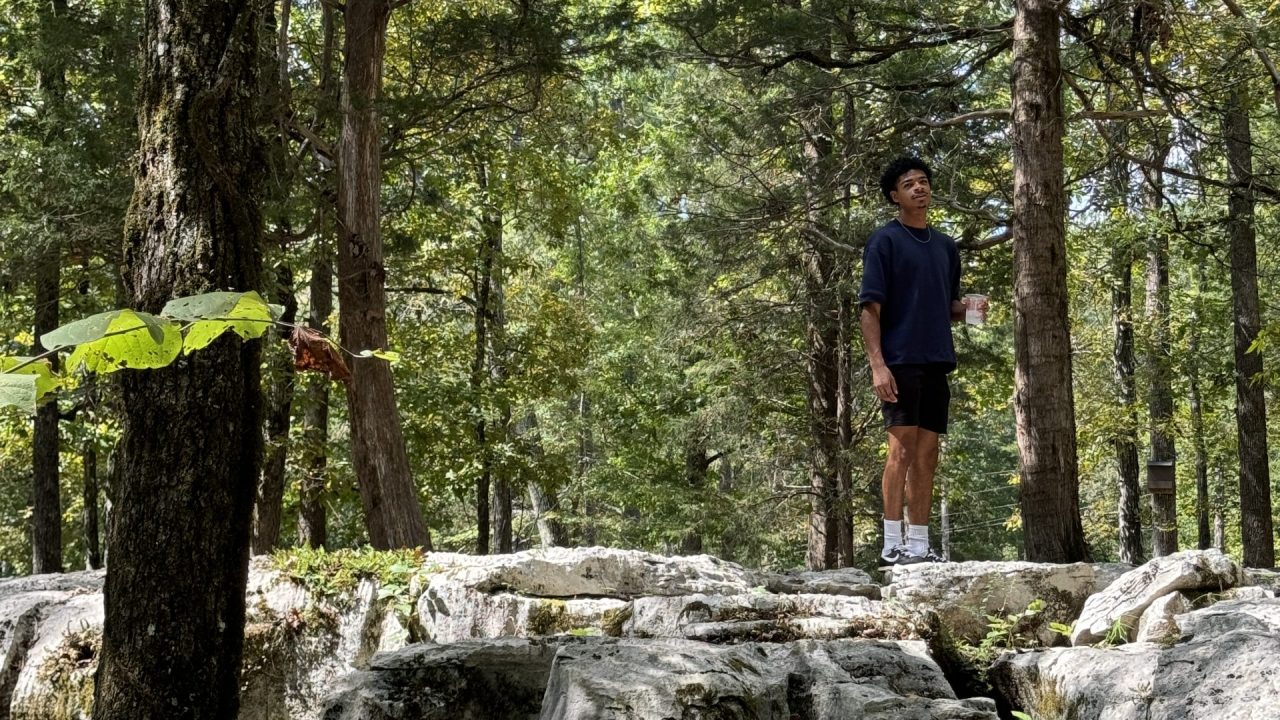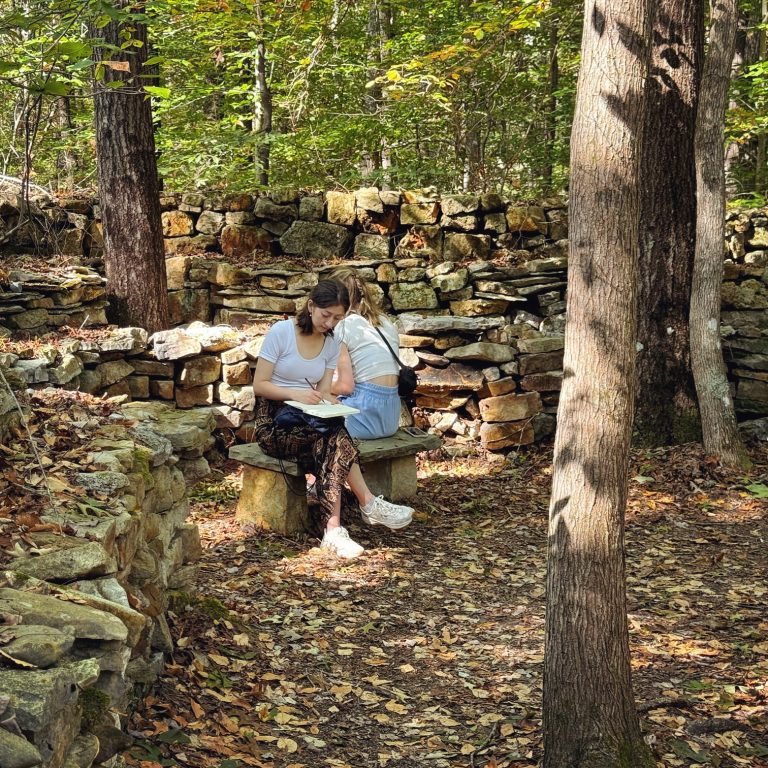Tiger Giving Day Powers Transformative Alabama Field Trips for Landscape Architecture Students

Landscape Architecture students in the College of Architecture, Design and Construction (CADC) embarked on three transformative field studies trips across Alabama last fall, thanks to generous donor support during Auburn’s 2024 Tiger Giving Day.
Tiger Giving Day, a 24-hour university-wide crowdfunding initiative, unites campus needs with the generosity of the Auburn Family.
Last spring, CADC raised $11,115 to support Landscape Architecture’s boots-on-the-ground fieldwork program, Experience Alabama, allowing students to focus on exploring the state’s diverse landscapes without the worry of financial burden.
“As a program, we are committed to getting our students out of the classroom and into landscapes,” stated Isaac Cohen, Assistant Professor of Landscape Architecture and project co-owner. “These trips offer a new perspective, removing the financial concern so students can focus on learning and experiencing. For the first year of fieldwork, we emphasize exploring Alabama to help our graduate students connect with the landscapes they will live and work in during their time with us.”

Gwendolyn Cohen, Assistant Professor of Landscape Architecture and project co-owner, has seen these excursions spark a deeper curiosity for landscapes, especially as students experience the group dynamic early in their landscape architecture education.
“All are curious, but many don’t yet fully understand what the field is about,” she shared. “Traveling together with peers and a professor is incredibly valuable. Out-of-state and international students gain exposure to Alabama’s landscapes, while students from our state engage with it in new and meaningful ways.”
The trips primarily focused on the Black Belt region, northern areas such as Florence and Birmingham and Gulf Coast locations like Mobile. The goal was to engage with indigenous landscapes, Civil Rights sights and a broad spectrum of ecological regions.
Students greatly appreciated the financial support, which allowed them to focus on the experience rather than the expenses.
“It’s impactful to have a class like this that helps you to understand the state as it applies to what you are studying,” said Cheney Lewis, a graduate student in the Landscape Architecture program who participated in the Florence–Birmingham and Mobile excursions. “Having the cost of hotels, travel, tours and more taken off your shoulders is huge. I work, but with tuition and life expenses, it can be tough to afford trips like these. Our donors’ generosity shows a real commitment to our education. It makes a difference to get outside the studio, see real-world examples of what we’re learning and gain a greater understanding that way.”
For Juwuan Wright, another Landscape Architecture graduate student who attended all three trips, the financial support completely transformed the experience.
“I am so grateful to our donors for making it possible to focus on growth and learning without the stress of financial burdens,” Wright said. “Being able to embrace nature and experience places from so many different perspectives helped me grow tremendously.”
Wright found the trips eye-opening, both visually and historically.
“You’re not just learning about landscapes; you’re also learning about the state of Alabama,” he stated. “You see how they intertwine, and that insight can inform your future work. Landscape architecture tells stories and reveals histories. One of the most impactful stops for me was Africatown Heritage House. It’s a place where history is startling yet offers profound lessons from the past.”
Lewis also appreciated how the faculty framed the learning experience during the trips.
“For example, Isaac Cohen pointed out how, despite Mobile being a river city surrounded by water, there are challenges with accessibility to the waterfront from the downtown area,” she explained. “It was an important lesson for future design work—how decisions impact people who live in an area.”
Gantt’s Quarry during the Florence–Birmingham trip was another highlight of the experience for Lewis.
“Seeing this massive, beautiful lake area with marble remnants on the side of the road was incredible,” she said. “Some of the marble was used in New York City for Rockefeller Center, so you’re not just seeing the material—you’re seeing its journey and how it shapes structures across the country.”
Isaac Cohen noted that funding is currently available for three years of trips, but the program aims to extend the initiative and make these experiences a permanent part of the curriculum. There is also a plan to explore different regions of Alabama in future years, possibly alternating trip offerings to vary the experience.
“Experiencing landscapes is so important,” he stated. “At Auburn, we strive to build in our students a passion for landscapes and cultures through fieldwork. The travel component of our design studios directly engages landscapes and communities outside the university’s walls, and we are incredibly grateful for the opportunities last year’s Tiger Giving Day has provided for our students.”
See more in:
Alumni Engagement,
Events,
Faculty Collaboration,
Industry Engagement,
Student Experience,
Student Work
Related people:
Gwendolyn Cohen,
Isaac Cohen